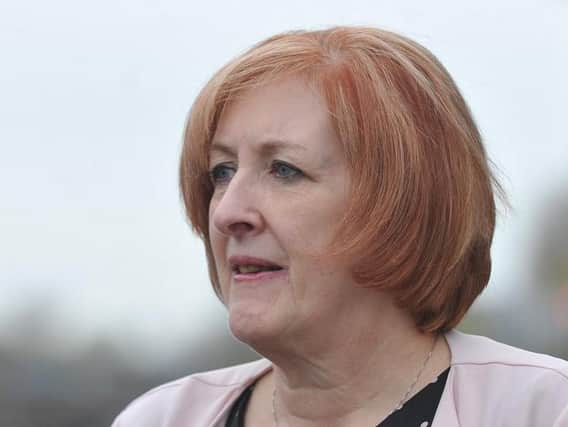YVONNE FOVARGUE - Debt problems affecting so many


For many people, Covid-19 simply made a bad situation worse. Even before the pandemic, more than nine million people were over-indebted and struggling with repayments.
Since March last year that number has spiralled. The debt charity StepChange say that 15 million people have been negatively affected by Covid-19, and they estimate that there is £10 billion worth of Covid-19-related debt in the economy. The number of people the charity is seeing has doubled and the same applies to Citizens Advice.
Advertisement
Hide AdAdvertisement
Hide AdThe types of people affected have changed too. While the core is the same – renters, young people and single parents – advice agencies are seeing more and more people who would have never have expected to be in debt, or to be asking for help, such as professionals and home owners.
Debt and debt problems are now affecting people from all walks of life.
Of course, there has been extra help available. It would be churlish of me not to acknowledge the worth of the various schemes brought in by the Government to support struggling individuals and businesses.
The referral of mortgage payments, payment holidays for credit cards, and a break on evictions and bailiff enforcements have all helped, as has the furlough scheme.
Advertisement
Hide AdAdvertisement
Hide AdThat being said, there have always been gaps, not least for the self-employed or for those paying rent.
There have also been problems for the increasing numbers who need to apply for welfare benefits. While there has been a £20 uplift for Universal Credit payments, there is still a long delay in getting the crucial first payment, which can leave many claimants in a desperate situation.
But there is no denying that the package of support has been a lifeline for millions of people.
Which is why the real problem will be when these schemes come to an end. True, there have been a number of extensions, but they will come to an end and at the moment that looks like happening in the spring.
Advertisement
Hide AdAdvertisement
Hide AdThe danger is that the support comes to an abrupt end and that many people who are just about managing at present fall off a cliff edge. It is essential, therefore, that the ‘roll off’, as some call it, is gentle and the government and the regulator, the FCA, work together to make sure this is so.
The Government also needs to look at the longer term and decide whether some of the support given should become permanent.
For example, surely now is the time to properly reform the use of bailiffs, so that people no longer face losing their goods or being evicted before they can agree a workable repayment plan.
Keeping the £20 social security uplift could also make a real difference to people.
Advertisement
Hide AdAdvertisement
Hide AdWhen it comes to lending, the banks need to give more thought to their customers and their ability to pay. They need to speak to their customers earlier and find out how they can help to prevent debts spiralling and to give extra support to vulnerable customers.
More thought also needs to be given to ensuring there is a sustainable credit market that people on lower and more uncertain incomes can utilise and which is geared to their needs.
Not a return to the bad old days of payday loans and rent to own, but helpful, flexible products.
Two years ago, the Treasury piloted a no-interest loans scheme - it would be good to see that rolled out.
Advertisement
Hide AdAdvertisement
Hide AdIt would be a great shame if the Government’s package of support merely delayed the onset of unmanageable debt.
If we truly want to help struggling people to get back to normal life when the crisis is over, then we cannot simply abandon them next April.
Thanks for reading. If you value what we do and are able to support us, a digital subscription is just £1 for your first month. Try us today by clicking here and viewing our offers ...